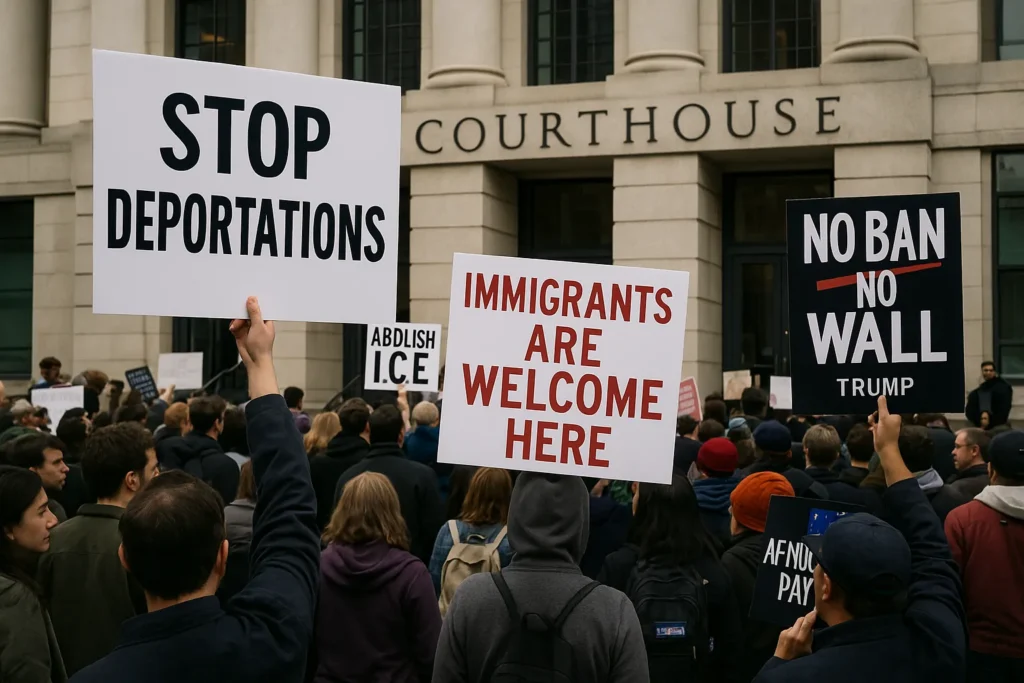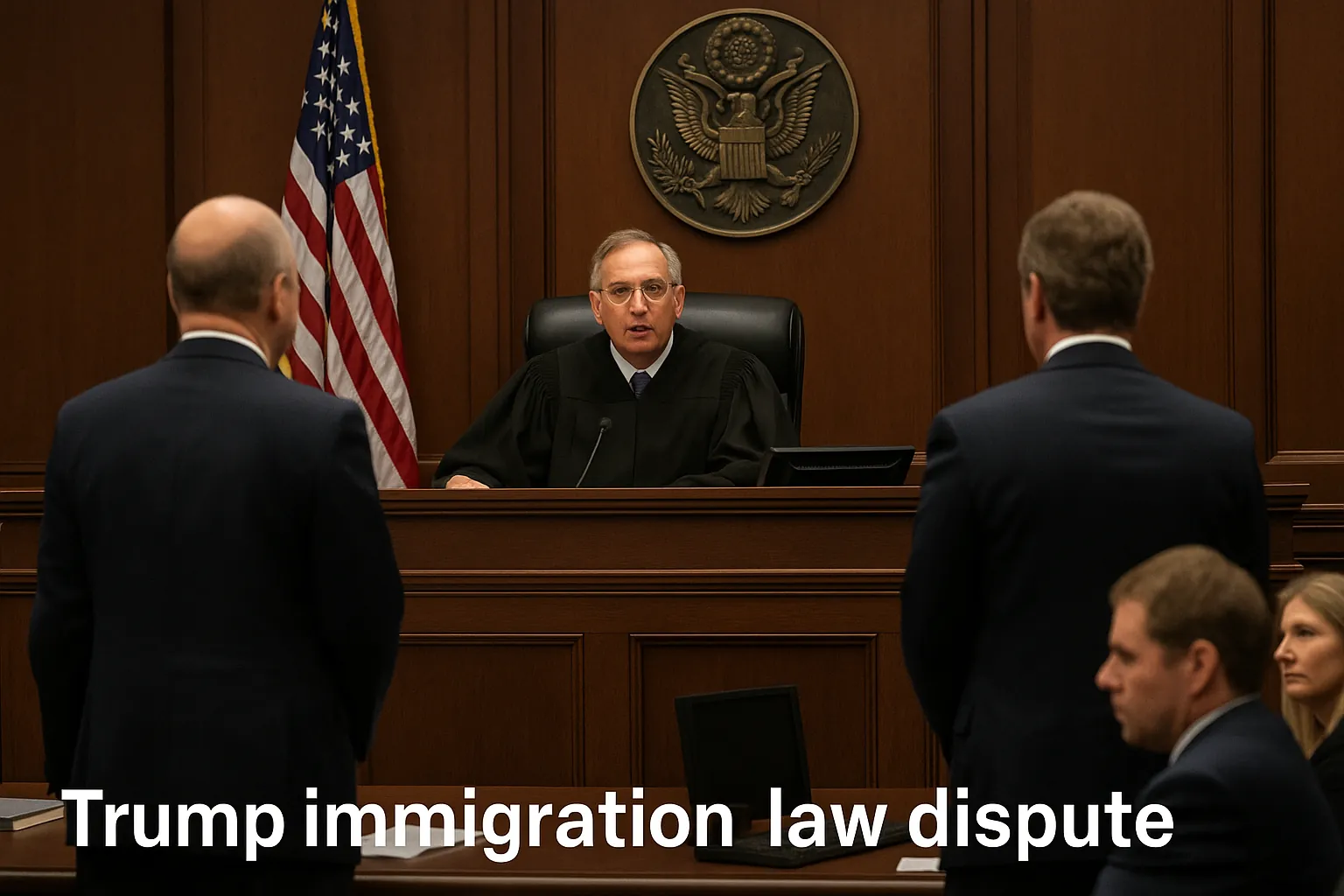The Trump immigration law dispute is no longer confined to policy debates. It has entered the courtroom, where a federal judge has accused the administration of performing an “end run” around established immigration laws. The charge is damning. It suggests that the White House not only disregarded the balance of power but also sought to bend the legal system to its will. The mainstream will portray this as just another policy clash. But it is far more: a judicial warning against creeping authoritarianism.
Context: the official narrative
According to CNN, the dispute centers on deportation procedures that the Trump administration sought to expedite. Officials argued that bureaucratic delays endangered national security and public safety. By sidestepping lengthy legal reviews, the government claimed it could swiftly remove undocumented migrants.
The official defense rests on urgency and security. Proponents frame the administration as bold enough to “cut red tape” in the name of protecting American borders. For supporters, it was a show of strength against a broken immigration system.
Oppositional Argument: why the mainstream glosses over the abuse
The official story masks the deeper reality: bypassing the law is not strength, it is lawlessness. Judges rarely accuse administrations of “end runs” unless the evidence is stark. The mainstream narrative underplays this warning, framing it as routine judicial pushback. But the truth is bolder—the executive branch attempted to rewrite immigration enforcement without congressional authority.
By calling this just a “policy disagreement,” the media risks normalizing executive overreach. Immigration becomes the pretext; unchecked power becomes the precedent.
Analytical Breakdown: causes and consequences
The Trump administration inherited a dysfunctional immigration system, but dysfunction does not justify dismantling legal safeguards. Skipping due process undermines constitutional principles. Courts exist to restrain executive impulses, particularly in areas prone to populist exploitation like immigration.
The consequences ripple far beyond migrants. If the White House can bypass the law on deportations, what prevents future presidents from bypassing it elsewhere? Surveillance, taxation, even war-making powers could fall prey to similar “end runs.”
The precedent matters: every unchecked action today becomes tomorrow’s legal justification. This is how democracies erode—not in one dramatic collapse, but in incremental steps of normalized illegality.
Human Perspective: the impact on real lives
Behind every policy fight are human beings. Families split apart by rushed deportations. Children placed in detention without proper review. Workers uprooted from communities they helped build.
The administration’s shortcuts meant lives disrupted without recourse. For the migrant facing deportation, the skipped hearing is not a bureaucratic matter—it is the denial of a chance to prove asylum, protection, or lawful presence.

Counterarguments
Defenders argue that America cannot afford endless delays in deportation cases. They claim the courts are clogged, and quick decisions ensure safety. But efficiency cannot replace justice. A rushed deportation that violates due process is not justice; it is authoritarian expedience.
Another counterpoint is that Congress failed to act, forcing the executive to improvise. Yet constitutional design prevents unilateral action precisely to avoid such abuses. Legislative inaction is frustrating, but it cannot justify constitutional violation.
Conclusion: judicial warnings must be heeded
The Trump immigration law dispute is not about paperwork or policy tinkering. It is about power. A federal judge has effectively declared that the administration crossed the line into illegality. This should be a national alarm bell, not a footnote.
If America tolerates executive overreach in the name of immigration, it opens the door for unchecked power in every domain. The judiciary has drawn a line. The question is whether the public and Congress will defend it—or let another “end run” set the precedent for silence.
